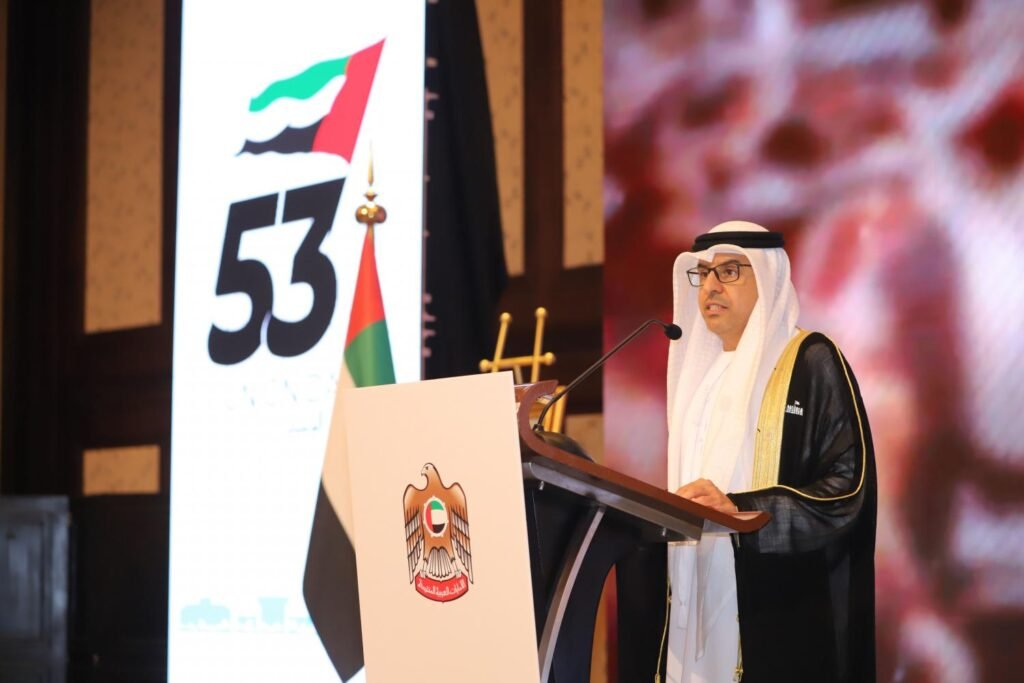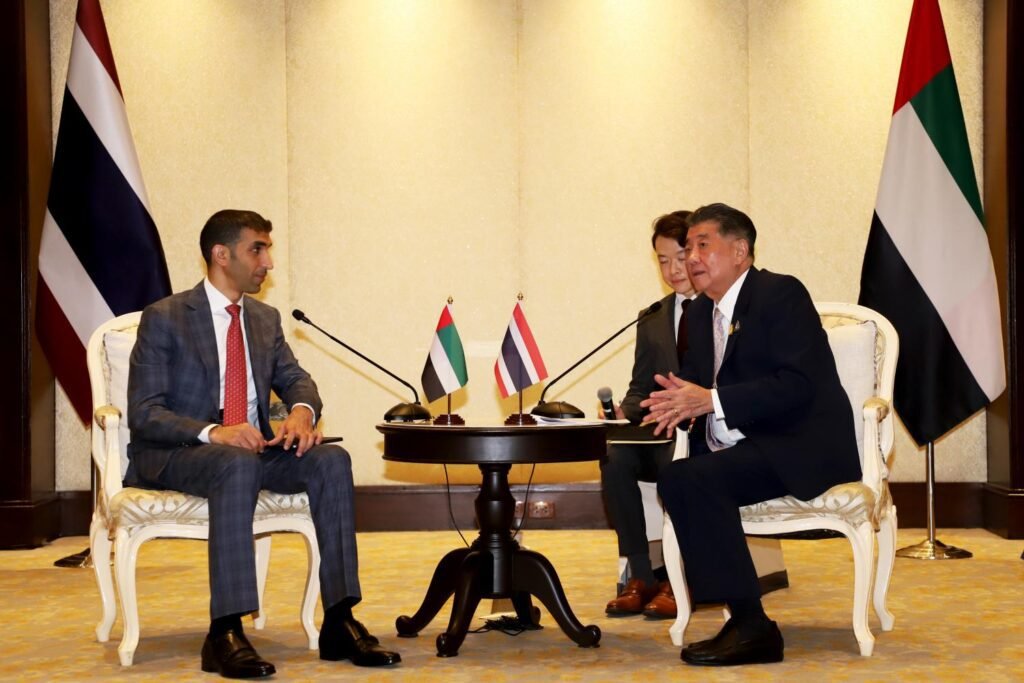The United Arab Emirates has just signed a major trade deal with Thailand that could change the game for Halal businesses. This agreement is all about increasing trade in food, cosmetics, and textiles that meet Halal certification standards. It’s part of the UAE’s bigger plan to become a top player in the global Halal market, and Thailand is an important partner in that mission.
The deal was signed during a special ceremony attended by top officials and business leaders from both countries. The goal is simple: make it easier and faster to trade Halal-certified goods between the UAE and Thailand.
What Is Halal and Why Does It Matter?
The word “Halal” means “permissible” in Arabic. In the world of food, it refers to how products are prepared, processed, and even packaged according to Islamic law. But Halal doesn’t just stop at food—it also covers items like makeup, skincare, clothes, and even pharmaceuticals.

Halal-certified products are in big demand, not just in the Middle East, but across Asia, Europe, and Africa too. The global Halal market is expected to reach over $3 trillion in the next few years. This deal between the UAE and Thailand is meant to grab a bigger piece of that growing pie.
UAE’s Vision: A Global Halal Hub

The UAE has been working hard to position itself as a global hub for Halal goods. It already has world-class infrastructure, fast customs services, and trusted certification systems. Now, with this new agreement, the country is making it even easier for businesses to export and import Halal products.
The deal also reflects the UAE’s strategy to strengthen ties with Asian countries and diversify its economy beyond oil. By forming strong trade links with Thailand, the UAE opens the door to millions of new customers and creates more opportunities for local businesses to grow internationally.
Why Thailand?
Thailand is one of Asia’s fastest-growing producers of Halal food and consumer goods. It has a strong agricultural sector and a well-developed food processing industry. What many people don’t know is that Thailand is also one of the top non-Muslim countries exporting Halal-certified products around the world.
This partnership makes perfect sense. Thailand wants to expand its market in the Middle East, and the UAE wants to import high-quality Halal products and re-export them to nearby regions. With this deal in place, both countries win.
What Does the Agreement Cover?
The new agreement includes several key points:
- Faster Halal Certification: Both countries agreed to align their Halal standards and speed up certification processes. That means businesses will have fewer delays and lower costs when trading products.
- More Training and Tech: There will be workshops and programs to help Thai companies understand UAE Halal standards. At the same time, UAE companies will benefit from Thailand’s innovation in food tech and product development.
- Boosted Logistics Support: With better trade routes and shipping deals, goods can move faster between the two countries. Dubai’s ports and airports will play a big role in making this happen.
- Business Matching Events: Regular trade shows and events will be hosted to connect buyers and sellers. This is expected to open up new partnerships and boost sales.
Opportunities for Small and Medium Businesses

One of the biggest winners from this deal will be small and medium-sized enterprises (SMEs). These businesses often struggle with complicated export rules and high costs. By reducing red tape and aligning standards, the new agreement gives SMEs a real chance to enter the Halal export market.
Thai companies that want to enter the UAE market can now do so more easily. And UAE-based companies looking to source ingredients or products from Asia can tap into Thailand’s massive Halal production industry.
How Consumers Will Benefit
This deal is also good news for everyday consumers in both countries. People in the UAE will now have access to a wider variety of affordable, high-quality Halal goods from Thailand. This includes everything from food and drinks to beauty products and clothing.
On the flip side, consumers in Thailand may see more UAE-made Halal products on their shelves, especially items that come from top UAE brands or specialized manufacturers.
A Stronger Halal Ecosystem
In the long run, the UAE-Thailand agreement is expected to help build a stronger and more trusted global Halal ecosystem. By working together, the two countries are creating a model that other nations can follow. It’s about more than just trade—it’s about building a framework that ensures quality, trust, and efficiency in Halal supply chains.
This move also supports the UAE’s “National Strategy for Industry and Advanced Technology,” which aims to boost local production, exports, and innovation across different sectors.
Final Thoughts
The new trade agreement between the UAE and Thailand marks an exciting step forward in the world of Halal trade. It brings two strong economies closer together and opens up fresh opportunities for businesses, investors, and consumers alike.
With Halal products becoming more popular across the globe, the timing couldn’t be better. As the UAE continues to grow its influence in this space, deals like this one with Thailand help pave the way toward becoming a true global leader in the Halal economy.
Also read: Dubai Chamber Hosts Gulf Business Leaders Forum to Boost Investment













